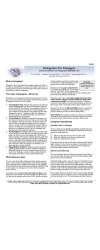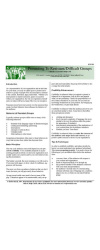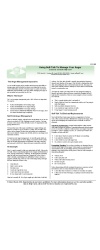We live in a society that seems to value finding people to blame when things go wrong rather than to identify how to prevent things from going wrong again in the future. So, it’s not surprising that individuals often got caught up in the blame game, and tend to try to pin the tail on the donkey when something goes off track. Unfortunately blaming is usually pointless.
Here’s an excerpt from Conflict Prevention In The Workplace – Using Cooperative Communication, by Robert Bacal:
Blaming comments are about finger-pointing and trying to affix blame for something that has happened in the past or is happening at the moment. By their nature, they are also person-centered.
Because of the way blaming comments are phrased, they are clearly not oriented towards solving a problem but focus on finding someone to blame (an emotional process) for the problem. This is an important distinction. Not only is blaming inflammatory, but it allows everyone to try to shift responsibility for messes and to do nothing to prevent them in the future.
Examples:
- It’s your fault we are in this mess
- If you had done what you were supposed to we wouldn’t be having this discussion.
- I can’t believe you are causing all this trouble.
It’s important that we make the distinction between responsibility and accountability on the one hand, and blame on the other. Blame is about emotions, shaming, and making someone feel “less than”. Responsibility and accountability have to do with the factual issues (not emotional) of what actions by whom caused what.






